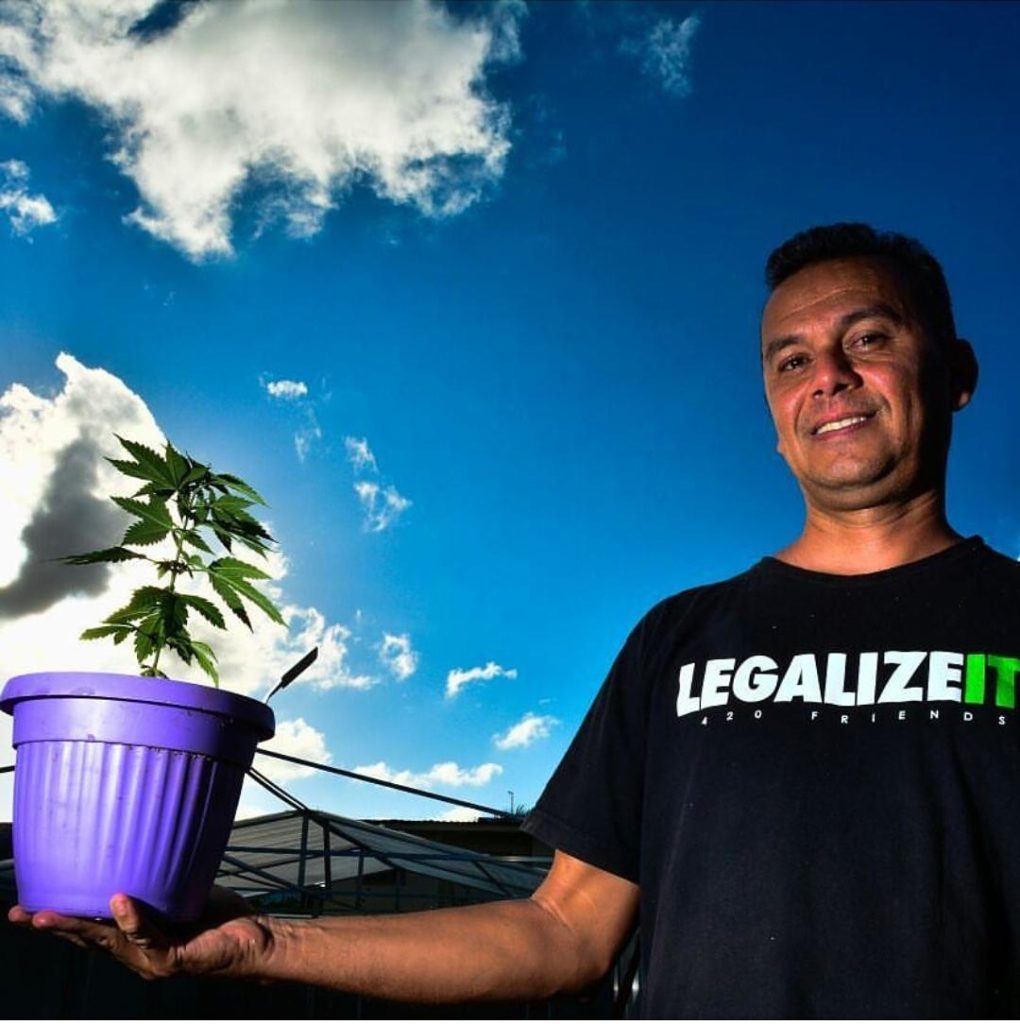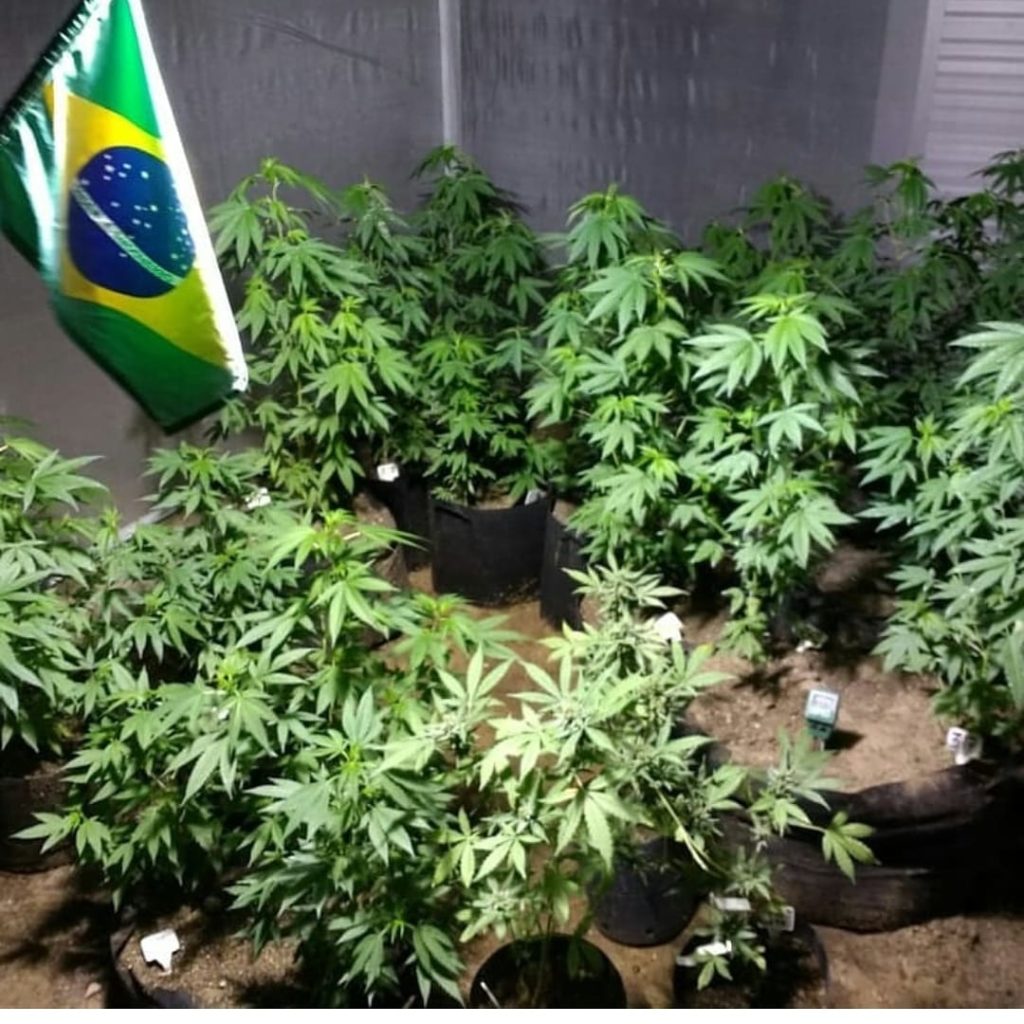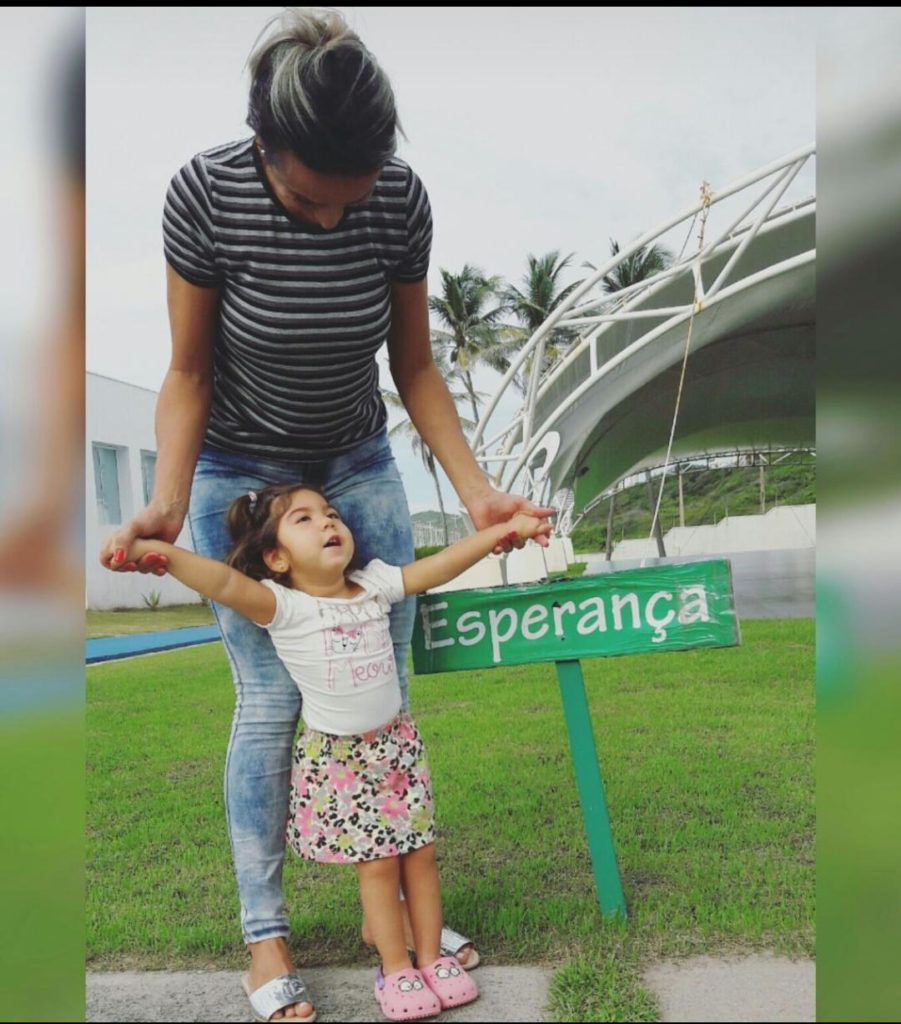
by Stephen Charles Flohr
5/29/18 – Paraiba, Brazil
In an unprecedented decision, the Brazilian Federal Court has granted a nonprofit entity with the right to grow and manipulate cannabis for medicinal purposes. ABRACE, meaning “give a hug” in Portuguese, is also an acronym that signifies the Brazilian Association of Cannabis Hope Support, the nonprofit association which has received official authorization to cultivate the medicinal herb in order to carry out its mission of treating patients and conducting research in the field of medicinal cannabis. In a country still suffering the dreadful effects of prohibition, stigma and misinformation with regards to cannabis, the developments taking place in the wake of this federal nod of approval are truly groundbreaking in every sense of the word.
From Underground to Breaking Ground
Cassiano Teixeira, 45, is the founder and president of ABRACE. When asked regarding his mission, his response is simple yet profound: “Saving lives.” From the very beginning, Cassiano’s approach has been one of compassionate care. Seeing his mother suffering from serious lung ailments and severe depression, he turned to cannabis as a means to alleviate her suffering. With the rudimentary knowledge he had at the time, he acquired some cannabis and managed to make some homemade oil. Reluctant at first due to the negative stigma surrounding the “drug”, she eventually obliged to sample her son’s concoction. “Within hours of her first dose she was out of bed and on her feet washing dishes”, notes Cassiano. “Now its something she can’t live without.” Emboldened by his mother’s recovery, he began sharing his experience with others in his social circle and noticed that there was a growing interest in using cannabis for therapeutic application. In 2013, he began helping desperate mothers of children suffering from a rare form of epilepsy in their efforts to import CBD oil into Brazil from USA-based suppliers Hempmeds and Life Enthusiast. He began using Facebook as a means for organizing groups of families in need and before he knew it, he was carrying out mass importations of nearly 100 shipments per month. It wasn’t until 2014 that the National Sanitary Surveillance Agency (ANVISA), officially approved the importation of CBD for medicinal use.
Patients in increasing numbers were experiencing the benefits of treatment with CBD oil when sudden fluctuations in the value of the U.S. Dollar soon rendered importation all but impossible for the majority of families in need. They were suddenly faced with an insurmountable cost that often exceeded $1,000 ($4,000 reais)/month at a time when the country’s minimum wage salary was around $800 reais/month. “We were faced with a difficult situation. We knew that the oil was cheap to make, so I decided to take the initiative myself.” He began by making tinctures using alcohol as a solvent, yet the strong flavor proved to be unpalatable for many patients, especially children. He then experimented with glycerine. Owing to its natural sweetness, the kids quickly took to the application and Cassiano knew that he had found the perfect recipe for a potent extract. He then focused on packaging, labels and even set up a website, daring to promote and deliver his medicine despite the high risks posed by federal prohibition. “Of course I was scared. But I wasn’t really worried about the personal cost of going to prison. I was just worried that if I went to jail, I would leave my patients without their oil.”
His work was making a difference. Patients, mostly suffering from cancer, were seeing remarkable results and the word spread, eventually garnering the attention of prominant community representatives, lawyers and government officials in the Public Ministry. Through community support, patient and family testimony and relentless legal advocacy, ABRACE soon gained official status as a non-profit association in the civil registry. In November 2017, their petition to cultivate cannabis was officially awarded, allowing Cassiano and his team to shake off their fears once and for all. “Days before the decision, they [the Feds] were flying drones over our facility. I had to leave and was worried that the police were going to come down on us at any moment. But now that’s past. We did it. There’s no more fear.”
On The Grow

ABRACE now has 18 employees working at 3 facilities in 3 different cities, all in the the northeastern state of Paraiba. Full-time staff includes a professional grower, pharmacist, chemist, and a team of knowledgable customer care representatives. Currently, a total of approximately 600 patients are being served. Patients are welcomed and served in a dispensary where they can purchase t-shirts, literature and cannabis extracts, in addition to receiving consultation in a safe, welcoming environment. Patients are eligible to obtain their medicine through the referral and prescription of a licensed physician. They pay an annual association fee which confers them the title of official “partner” of the association. They are then able to purchase their medicine at an affordable price which doesn’t reach 10% of the cost they would incur had they sought to import the product themselves. Roughly 20% of patients are exempt from any fee whatsoever. “Its important that we avoid a conflict of interest”, notes Cassiano. “This isn’t a financial issue. This is a life issue. It’s about saving lives. We put life in front. The plant is a means to an end.”
That’s not to say that they overlook the plant. In fact, very painstaking measures are taken to ensure that only high quality cannabis is grown and fit for medicinal extraction. Sergio Vidal, 39, is ABRACE’s grower and cultivation expert. His academic research in the field of growing cannabis for personal use eventually led to the publishing of his book, “Medical Cannabis: An Introduction to Indoor Growing”. With nearly 20 years of grow experience, Sergio travels the country giving workshops on cultivation and met up with Cassiano back in 2015 to discuss the possibility of drawing out a cultivation schematic. That’s back when it was all still illegal. Now, he is growing full-time within legal parameters. And here’s how he does it:
High CBD seeds are provided by Medical Marijuana Genetics seedbank (England) with varying CBD/THC ratios of 20/1, 1/1, 2/1 and 3/2. Other strains grown include Supreme CBD Kush, Euphoria CBD, and Royal Highness. Other non-pedigree seeds will be grown and tested for cannabinoid composition in order to stabilize and prepare them for eventual production.
The plants, currently numbering 400, are grown in an Indoor/Outdoor combination, utilizing 3 main tents for supplemental light. The region receives 12 hours/day of sunlight all year round.
For fertilizer, Sergio uses Fatcrystal, a national brand of organic and mineral nutrients. Insect control is accompished through the use of beauveria bassiana, predator mites, and azadirachtin, as well as with homemade tobacco “teas”. Probiotic plant nutrition, such as lactobacillus, and compost, are added whenever possible to the soil, a mixture incorporating 3 equal parts of vermiculite, rice husk and worm humus.
ABRACE is looking to expand their grow to another facility in hopes of reaching their ambitious 2019 goal of providing for 10,000 patients. Continued collaboration with universities and physicians in order to conduct scientific research is a key component of the association’s mission. Teams of physicians are accompanying patients and studying their experience in using cannabis remedies. Since ABRACE is an association, they are currently barred from seeking loans from a bank. Therefore, it seeks donations of funds and equipment through campaigns and working relationships with local and international institutions that are sympathetic to their work.

While the question is still a political conundrum and social taboo for many, ABRACE is evidence that Brazil is inching along towards a greater understanding, acceptance and practice of medical cannabis. Since ABRACE focuses exclusively on whole plant medical extracts, nobody is actually smoking cannabis flower for medical benefit. That issue, along with the right of the individual to grow for personal use, is being fought on various fronts by other activists and groups throughout Brazilian civil society. However, the groundwork being laid by ABRACE will surely serve to increase public awareness with hopes of generating a broader and more humane public policy at the national level.